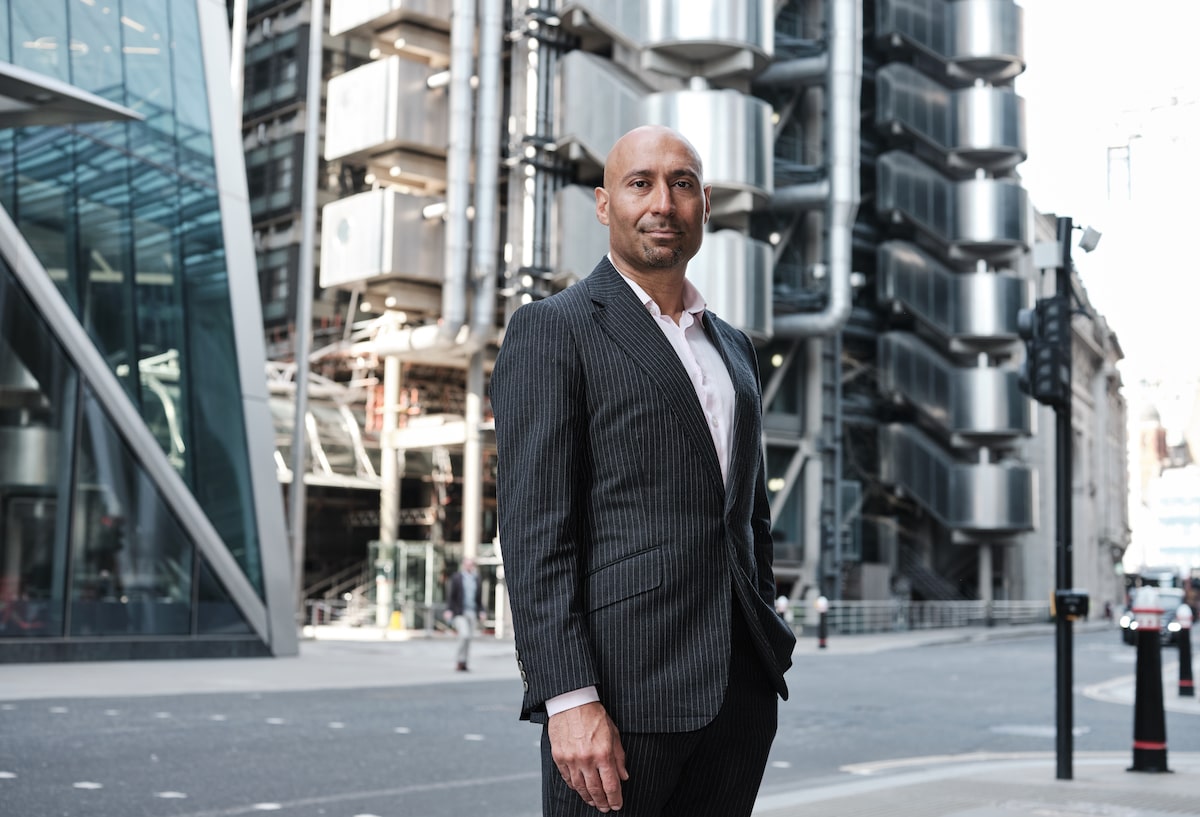A radical recruitment firm is transforming the intake of Britain’s most prestigious employers, using an algorithm that weeds out privileged but mediocre people and identifies talent from disadvantaged backgrounds
The Bank of England. Freshfields. Linklaters. Slaughter and May. Allen & Overy. Clifford Chance. Deloitte. Morgan Stanley. I could go on: a list of more than 150 elite employers across law, finance and management consulting that make up Britain’s most prestigious and well-paying employers.
And they have one other thing in common: they have quietly started using a radical new recruitment algorithm that shoves aside posh-but-mediocre candidates for the stars of the working class.
‘Contextual admissions’ has been on the go in British universities since the turn of the century. They don’t like to talk about it, but Oxbridge and other redbrick institutions lower the A-level grades required of teenagers from the worst schools, acknowledging research that shows that an A from Eton is easy-peasy to achieve compared with one from the shoddiest comp.

But companies? Companies using a tech solution to right the wrongs of society, to see past the coddling or hardships in a job applicant’s life, as a kind of meritocratic sorting hat? And not just as a fringe experiment in class war, but right at the heart of the decision process for the City’s most blue-chip, traditional and high-stakes training contracts, making masters of the universe out of the losers in life’s lottery. And at the same touch of a computer button, striking terror into the heart of the middle-class parents of complacently and lavishly educated kids, the death knell for characters like Harry Enfield’s Tim Nice-But-Dim. That’s new. And it is all the work of one intriguing man, Raphael Mokades.
We spend an hour talking about how his algorithm – known as the Contextual Recruitment System and provided by his company, Rare – is the new rocket fuel for social mobility, processing to date nearly two million graduate applications. Then I ask Mokades what he is doing at a deeper level. “We are making British society fair and more equal,” he replies. “I think that’s really clear.”
Mokades confuses people. He was born near Kensal Rise in north-west London, and is taken variously to be black, Muslim, Indian or Arabic. He went, on scholarship, to a private secondary school. In Kensal Rise he was considered the only white boy on the basketball team. When he arrived at Oxford University and joined the basketball team he was treated like the only black boy.

The City of London is hardly renowned for social mobility. An algorithm is changing that. Image: Ed Robertson
Actually, Mokades is Jewish; his father is Israeli, his father’s parents Iranian and Uzbekistani, and his mother’s family fled Nazi Germany. In an era of identity politics, this enables him to speak directly. “I don’t get people saying: ‘You can’t talk about this.’ Because people don’t know who I am. I’ve been able to swerve.”
After leaving Oxford he wanted to do some good. He was inspired by his father, who founded a basketball centre in Kensal Rise. It followed the model of boxing in the East End, helping young men to get qualified as players and coaches. “Kensal Rise in the 1980s was a high-unemployment, high-deprivation area. He had tremendous impact.”
While working as the head of diversity for Pearson, Mokades became deeply affected by research that showed that, as he summarises, “elite professions are more or less closed to people from particular backgrounds”.
We are helping disadvantaged kids get into the top echelons of British society. I’m really proud of that
“The evidence is overwhelming that a refugee kid on free school meals who manages to get an A and two Bs from a school where everyone else is getting Ds is very high potential. That kid doesn’t even get looked at. And if they did look at them, they’d still think: ‘Oh, no work experience, worked in Primark, looks rubbish.’”
Mokades founded Rare, and got to work on the most sophisticated model of ‘contextualisation’ he believes has yet been devised. It captures 13 markers of disadvantage from any candidate. These include the performance of your school at GCSE and A-level; whether you were a refugee or in care; whether you were a young carer; whether your parents went to university; the extent to which you worked in a job during school or university; whether you were on free school meals and the socioeconomic detail not just of your postcode but the specific streets where you live.
Any of these measures alone don’t count for much. Instead the algorithm gives each indicator a different weight that works cumulatively with the others. “If David and Victoria Beckham’s child goes to university, he’ll be the first in his family to go, but he is not disadvantaged.”

‘We are making British society fair and more equal,’ says Mokades. Image: Michael Leckie/The Times
What Rare is then able to do is to give employers a calculation of how far each candidate outperformed their school average, and how deprived their background is. Using contextual recruitment instantly changes the applicants’ rankings wildly, with some of those formerly at the bottom revealed as extreme outperformers. Since the algorithm launched in 2015 they have have found that companies using contextualised recruitment hire 61 per cent more young people from disadvantaged backgrounds.
It has also launched educational programmes that don’t just identify talent, but develop it by partnering with schools and universities to offer disadvantaged young people support with university applications, CVs and interviews. Its multi-award-winning ‘Articles’ development programme for BAME students applying for legal training contracts has been so successful that today, roughly one in five ‘magic circle’ trainees is a Rare candidate.
The main driver for these companies is a ruthless search for people with talent and capacity for extremely hard work. “They are sensitive to bad trainees as they cost them so much. If I can help them find the kid who may have an A and two Bs, but is a brilliant outperformer and has overcome extraordinary adversity, those people perform better on average as lawyers six years into their career.”
If a kid gets off the boat from Syria, goes into care, goes to a sink school, gets three Bs. Those three Bs are more impressive
I start to play the tiny violin that nestles in the sharp elbows of the middle classes.
“That’s the thing that pisses upper middle class parents off, the idea that their kids can work as hard as possible and be punished. That’s not fair. We are strongly against that.
“Now here’s a different argument. You send your kid to private school. Your kid gets three Bs because they’re smoking weed. Meanwhile, some kid gets off the boat from Syria as an unaccompanied child minor, goes into care, goes to a sink school, works for money all the way through and gets three Bs. Those three Bs are more impressive. I’ll have that argument with anyone.

The algorithm contextualises young people’s achievements, taking into account disadvantages. Image: Taylor Wilcox
“Let’s be clear: companies are never going to discriminate against spectacular people from privileged backgrounds, but slightly less spectacular people from privileged backgrounds? Yeah. There’s more competition now. More people are being considered, who might look different. I think that’s fair enough.”
Mokades refers me to the details of a young man from Essex with parents who left school at 16, went to a disintegrating sixth form where the teachers often stopped turning up, while working at Next every weekend, and felt “anchored down” by mediocre A-levels. Because of contextual recruitment he got seen by a big City law firm, did brilliantly at the final round and fulfilled his childhood dream of becoming a lawyer.
“It’s a big change. I think about what my dad was trying to achieve in the 80s, getting people off the streets. Now what we are doing is helping get them into the top echelons of British society. I’m really proud of that.”
Case study: Leonie Campbell-King, banking and finance lawyer
“I went to my local comprehensive and was raised by my mum, a nurse, on her own. I have a picture of me aged 12 with eight school friends. By the time we were 18, two had been to prison and five had babies. So I come from quite a different background to most of the people I now work with.
My life has taken a different direction to that of some of the people I grew up with. I think that’s in part because I managed to get the grades I needed to study law at UCL where I met Rare, and went on their Articles programme.

‘Without it, I wouldn’t be where I am today,’ says Campbell-King. Image: Bill Night
On Articles, you visit a number of City law firms. This makes them less alien but you still feel like you stand out like a sore thumb. We also had one-on-one sessions with a qualified lawyer – mock interviews and debates. That helped level the playing field between me and the people I was competing with. People who had been to boarding school, had private tutors, whose parents were lawyers. People who weren’t intimidated talking about current affairs in interviews with an old, generally white lawyer because that was their dad or their uncle or godfather.
That made the difference for me. Without that programme I wouldn’t be where I am today.”
Main image: Michael Leckie/The Times/News Licensing
Article: The Times/News Licensing
Credit: Source link



